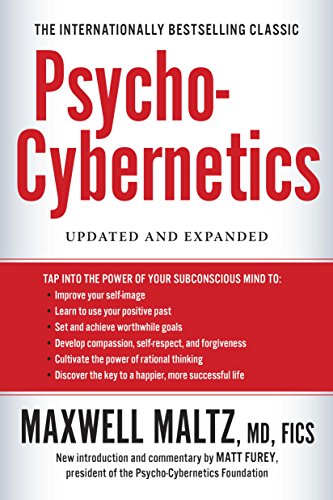The third component to a “Success Personality” is courage. This is the next part in my series of what is required to have on-going success throughout your life; what personality traits you need to be a lifetime success.
All the ingredients of a success personality include:
A good personality is one which enables you to deal effectively and appropriately with environment and reality, and to gain satisfaction from reaching goals which are important to you.
In previous posts, I discussed how you can only truly continue to achieve success if you have a sense of direction and use good communication to gain a greater understanding of your situation.
The third component is…
𝗖𝗢𝗨𝗥𝗔𝗚𝗘:
Having a goal and understanding the situation are not enough. You must have the courage to act, for only by actions can goals, desires and beliefs be translated into realities.
Admiral William F. Halsey’s personal motto was a quotation from Nelson, “𝘕𝘰 𝘊𝘢𝘱𝘵𝘢𝘪𝘯 𝘤𝘢𝘯 𝘥𝘰 𝘷𝘦𝘳𝘺 𝘸𝘳𝘰𝘯𝘨 𝘪𝘧 𝘩𝘦 𝘱𝘭𝘢𝘤𝘦𝘴 𝘩𝘪𝘴 𝘴𝘩𝘪𝘱 𝘢𝘭𝘰𝘯𝘨𝘴𝘪𝘥𝘦 𝘵𝘩𝘢𝘵 𝘰𝘧 𝘢𝘯 𝘌𝘯𝘦𝘮𝘺.”
‘The best defence is a strong offense,’ is a military and sporting principle but its application is wider than war or competition.
All problems, personal, national, or combat, become smaller if you don’t dodge them, but confront them. 𝘛𝘰𝘶𝘤𝘩 𝘢 𝘵𝘩𝘪𝘴𝘵𝘭𝘦 𝘵𝘪𝘮𝘪𝘥𝘭𝘺, 𝘢𝘯𝘥 𝘪𝘵 𝘱𝘳𝘪𝘤𝘬𝘴 𝘺𝘰𝘶; 𝘨𝘳𝘢𝘴𝘱 𝘪𝘵 𝘣𝘰𝘭𝘥𝘭𝘺 𝘢𝘯𝘥 𝘪𝘵𝘴 𝘴𝘱𝘪𝘯𝘦𝘴 𝘤𝘳𝘶𝘮𝘣𝘭𝘦.
Someone has said that FAITH is not believing something in spite of the evidence. It is the COURAGE to do something regardless of the consequences.
Why Not Be Brave Enough Bet on Yourself?
Nothing in this world is ever absolutely certain or guaranteed. Often the difference between a successful man and a failure is not one’s better abilities or ideas, but the courage that one has to bet on his ideas, to take a calculated risk—-and to act.
We often think of courage in terms of heroic deeds on the battlefield, in burning building, or similar crisis. But everyday living requires courage, too, if it is to be effective.
Standing still, failure to act, causes people who are faced with a problem to become nervous, feel “stymied,” “trapped,” and can bring on a host of physical symptoms.
My advice is to study the situation thoroughly. Go over in your imagination the various courses of action possible to you and the consequences which can and may follow from each course. Pick out the course which gives the most promise—and go ahead.
If we wait until we are absolutely certain and sure before we act we will never do anything.
Any time you act you can be wrong. Any decision you make can turn out to be the wrong one.
But, we must not let this deter us from going after the goal we want. You must daily have the courage to risk making mistakes, risk failure, risk being humiliated. A step in the wrong direction is better than staying “on the spot” all your life.
Once you’re moving forward you can correct your course as you go. Your automatic guidance system cannot guide you when you’re stalled, “standing still.”
𝗙𝗮𝗶𝘁𝗵 𝗮𝗻𝗱 𝗖𝗼𝘂𝗿𝗮𝗴𝗲 𝗔𝗿𝗲 𝗡𝗮𝘁𝘂𝗿𝗮𝗹 𝗜𝗻𝘀𝘁𝗶𝗻𝗰𝘁𝘀
Have you ever wondered why the “urge” or desire to gamble seems to be instinctive in human nature? One theory is that this universal “urge” is an instinct, which, when used correctly, urges us to bet on ourselves, to take a chance on our own creative potentialities.
When we have faith and act with courage, we’re gambling on, taking a chance on, our own creative talents. Faith and courage are natural human instincts and we feel a need to express them—in one way or another.
𝙀𝙭𝙚𝙧𝙘𝙞𝙨𝙚 𝙋𝙧𝙚𝙨𝙘𝙧𝙞𝙥𝙩𝙞𝙤𝙣:
Be willing to make a few mistakes, to suffer a little pain to get what you want. Don’t sell yourself short. Most people don’t know how brave they really are.
In fact, many potential heroes live out their lives in self-doubt. If they only knew they had these deep resources, it would help give them the self-reliance to meet most problems, even a big crisis.
You’ve got the resources, but you do not know you’ve got them until you act—and give them a chance to work for you.
Another helpful suggestion is to practice acting boldly and with courage in regard to “little things.” Do not wait until you can be a big hero in some dire crisis. Daily living also requires courage—and by practicing courage in little things, we develop the power and talent to act courageously in more important matters.
Yours optimally,
Scott
This post is inspired by and a modified extract from the book, ‘Psycho-Cybernetics‘ by Maxwell Maltz

Read more… Six Myths of Vulnerability

